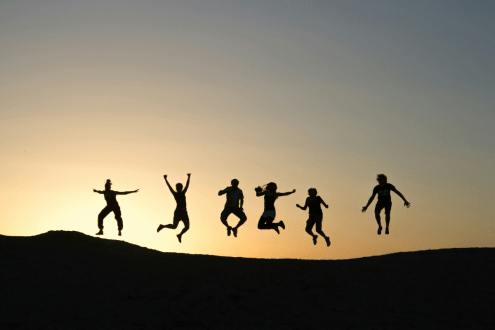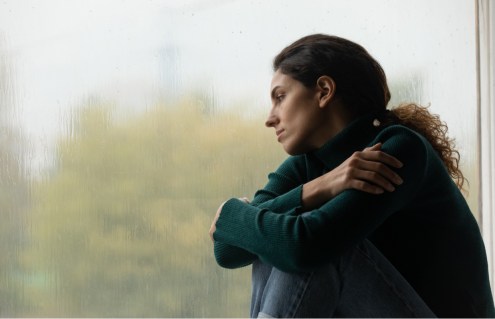What is ecotherapy? Benefits of walking in nature for anxiety
This National Walking Month, we take a closer look at whether walking and talking in nature - also known as ecotherapy - could help to ease anxiety...
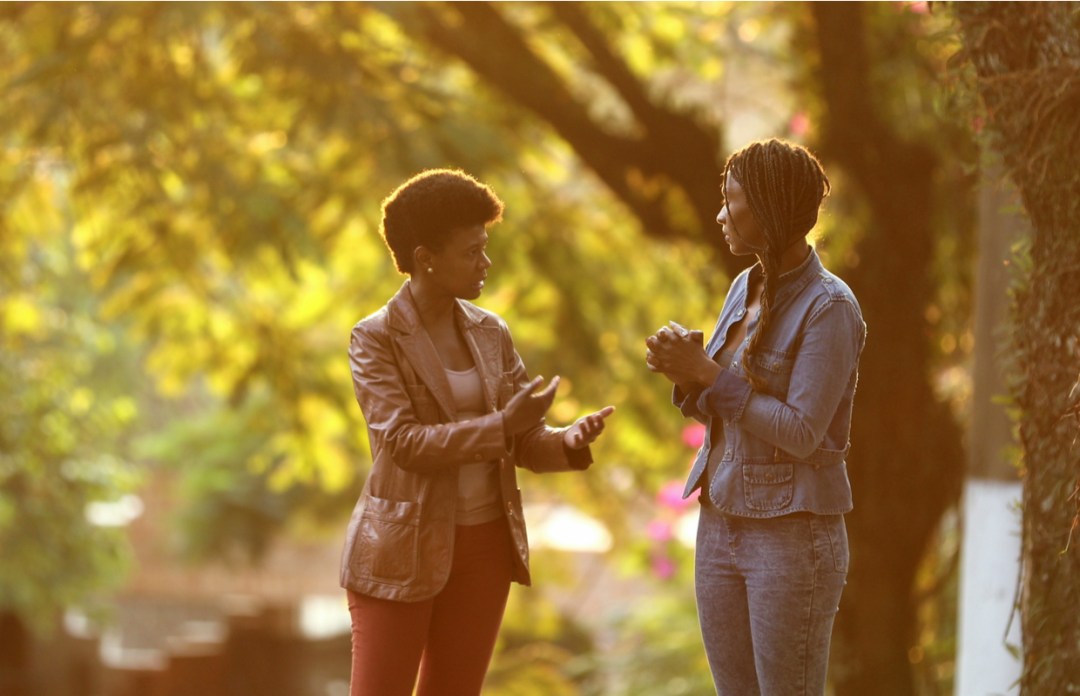
Is it easier to open up – and heal – in nature? A growing number of therapists believe so, and are moving their services outdoors. Alice Wright and Emma Winterschladen explore what ecotherapy is and what a session involves, to find out how walking and talking in nature could help with anxiety…
What is ecotherapy?
A term first coined in 1996, ecotherapy is a type of nature-based healing which merges ecology and environmentalism with the human psyche. The charity Mind has been at the forefront of ecotherapy’s development in the UK, defining it as ‘therapeutic treatment that involves doing outdoor activities in nature’.
There is no single definition for the term, as the therapy can have many different forms. However, ecotherapy is often used to describe counselling or talking therapy sessions that take place outdoors, usually in peaceful, natural locations, like in woodlands, by the sea, or in a meadow.
This could look like gardening therapy, arts and crafts based in nature, animal-assisted therapy, wilderness therapy and, increasingly, eco-psychotherapy.
Why is nature healing?
Healing within a natural setting is nothing new – indigenous cultures and traditional medicines have long seen human health as intrinsically tied up with Mother Nature, whether that be through ancient plant ceremonies or ‘taking to the sea’ the Victorian way.
And now modern science is catching up: one study of more than 20,000 people found that 120 minutes of exposure to natural surroundings weekly, even in urban areas, significantly increased self-reported health and subjective psychological wellbeing.
Plus, another found that “ecotherapy-related techniques” are effective in helping heal various medical disorders, including depression and post-traumatic stress disorder, alongside offering “a general sense of connectedness to life as a whole”.
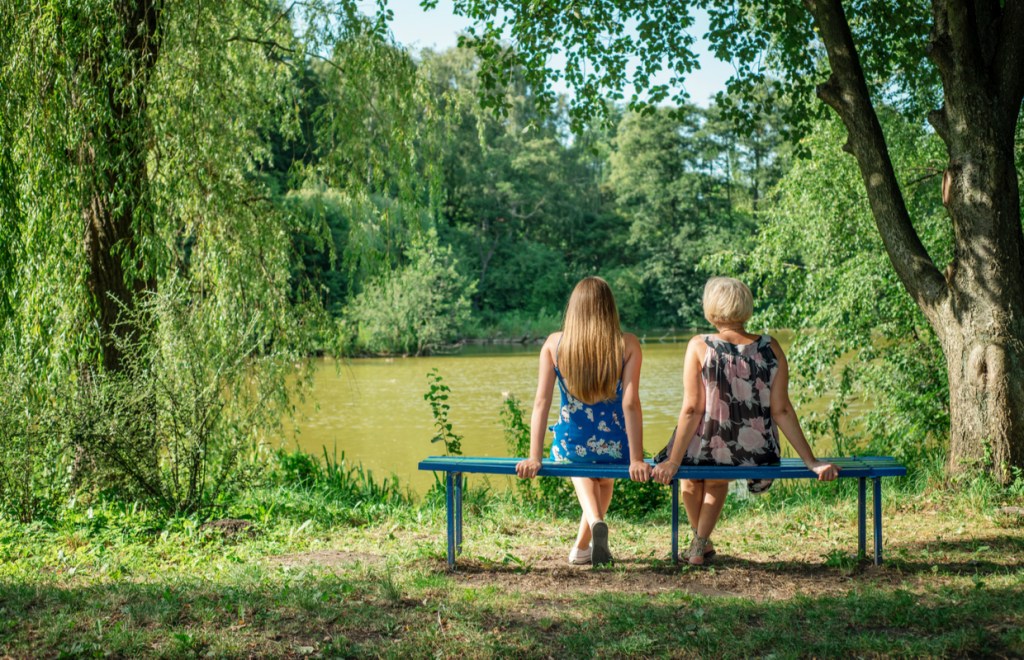
Benefits of ecotherapy: does walking help with anxiety?
The benefits of ecotherapy are becoming more widely recognised, and a growing number of counsellors offer outdoor sessions. This is backed up by numerous studies highlighting the healing power of nature.
For example, researchers at the University of Essex found that, of a group of people suffering from depression, 90 percent felt a higher level of self-esteem after taking a walk through a country park, and almost three quarters of the group felt less dispirited after the walk.
Last year, GPs on the Shetland Islands began issuing ‘nature prescriptions’, which instruct patients with chronic conditions to take strolls on beaches and moors, with a list of bird and plant species to look out for as they wander.
For Malachy Dunne from Lifetime Therapy, who conducts ecotherapy sessions, it is clear that walking and talking in nature does help with anxiety. Outside, he says, clients start to speak about their feelings in a more meaningful way.
There are also times when people don’t want to converse much at all. Often, being quiet in the company of someone else is a crucial part of the therapeutic process, and Dunne says clients find silence more comfortable and, ultimately, healing when they’re walking with their therapist in nature.
The importance of ecological consciousness
A crucial part of ecotherapy is an ecological consciousness – the view that our psychological wellbeing is intimately bound up with the health of the planet. For Emma Palmer, a Bristol-based eco-psychotherapist and author, taking therapy outdoors isn’t enough to qualify it as ecotherapy.
‘The past year has seen more therapists move outside the therapy room, and there’s no doubt of the value of “walk and talk” therapy in nature,’ says Palmer. ‘But, in my eyes, in order for it to truly be ecotherapy, the session has to, in some way, pay attention to our relationship with the environment.’
Our connection to nature
This awareness of our place alongside the ‘more-than-human’ world, a term used to describe all living species that are not human, and natural elements, such as mountains, clouds, rivers and forests, is central to many who practise.
Palmer points out that this doesn’t mean ecotherapy is reserved solely for those suffering acutely from eco-anxiety, or with an interest in environmental activism. ‘I’m not going to sit with a client and say, “I know you’ve recently divorced, but have you thought about climate change lately?”’ says Palmer.
‘Rather, there is a more organic shift that takes place when we connect with our surroundings – one that can not only be incredibly healing, but can also bring about an ecological awakening and heightened care for the environment.’
For some that may look like volunteering at a community garden, for others it’s choosing to walk to work. ‘It’s so often forgotten that we are nature,’ says Palmer. ‘So much of the work I do is about remembering that we’re part of this great, interconnected web of life.’
Using ecotherapy on your own walks
This capacity to reflect on our place in the ecological scheme of things doesn’t have to be confined to formal ecotherapy.
‘Even if we’re just going for a walk, as long as we go out with a sense of purpose, taking the time to slow, stop, look, breathe, notice, listen, smell and touch, we are already actively engaging in something bigger than ourselves,’ says Palmer.
What does an ecotherapy session involve?
Alice Wright joined Malachy Dunne for an ecotherapy session at Argal Lake. Here, she explains what an ecotherapy session involves and how she felt after experiencing it…
As we set off around the lake, I feel less apprehensive than I would have in the more formal setting of a consulting room. Like many people, I’m self-conscious when talking about my feelings or personal issues, except with people I am very close to – and even then it can be challenging.
Sitting across from someone I barely know and attempting to express my emotions is painful for me, but talking while we walk feels more natural. Making our way side by side also means I feel less exposed, as eye contact between us is only fleeting. Argal Lake is stunning in the morning sun and it would be almost impossible not to feel uplifted just by being here.
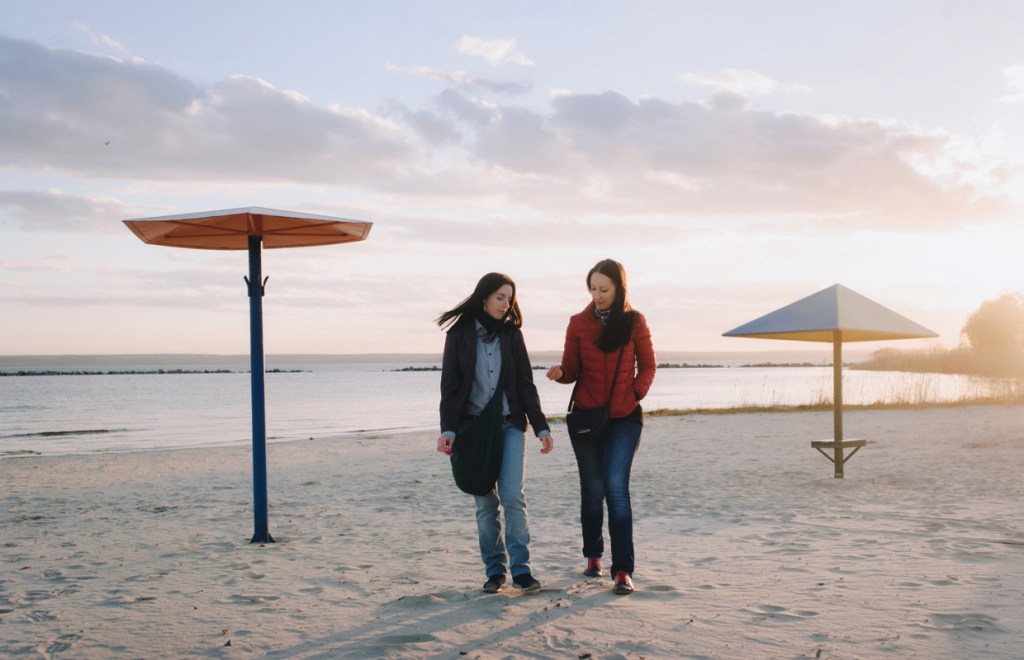
Learning to open up while in nature
Against this backdrop, it doesn’t feel too difficult to start opening up to Dunne about my struggle with anxiety and a lack of confidence. Focusing on the views around me as I speak gives me the mental space to try to connect with exactly what it is I want to say but, even so, it all comes out in a bit of a jumble.
Dunne carefully unpicks what I am trying to express and reflects it back to me. Just knowing that he has understood and can empathise with what I am feeling is hugely helpful. Because this topic is not something I would usually talk about, I worry that it might sound silly or confused. But, hearing Dunne’s recognition and compassion gives a legitimacy to my emotions that is both supportive and reassuring.
Indoor therapy verses ecotherapy
At one point during the ecotherapy session, I become a little tearful, which I would find uncomfortable if sitting in a confined space with a stranger. However, here by the lake, surrounded by nature, I can look away across the water and listen to the birdsong as I compose myself.
Later, there are moments when I’m not sure what to say, or need time to gather my thoughts. So, we simply walk quietly together. The silence does not feel awkward and I do not feel vulnerable. This is because the setting provides so much else to fill the gap, giving me confidence that walking in nature does help with anxiety.
Ecotherapy for mindfulness
Dunne believes that connecting with the sights and sounds of nature enhances people’s ability to connect with their feelings. This can lead to a more positive mood or mindset. During the session, we stop to listen to the sound of water lapping against stones, and I become calmer.
Dunne believes observing nature and connecting with it like this helps us access inner space and peace. ‘If we spend time listening to the water hitting the shore, it’s difficult for our mind to do anything else,’ he says. ‘For me, that’s mindfulness.’
Dunne suggests that being outdoors is beneficial for our mental health because it, quite literally, returns us to our natural environment. ‘As a species, we’ve spent a lot more time walking outdoors, hunting and gathering, than we have either growing crops or making machines,’ he explains. ‘So we are reconnecting with an ancient memory.’
The landscape is a constant presence. Pausing to notice the sunlight slanting through the trees, the stillness of the water and a robin hopping ahead of us, brings another dimension to our conversation.
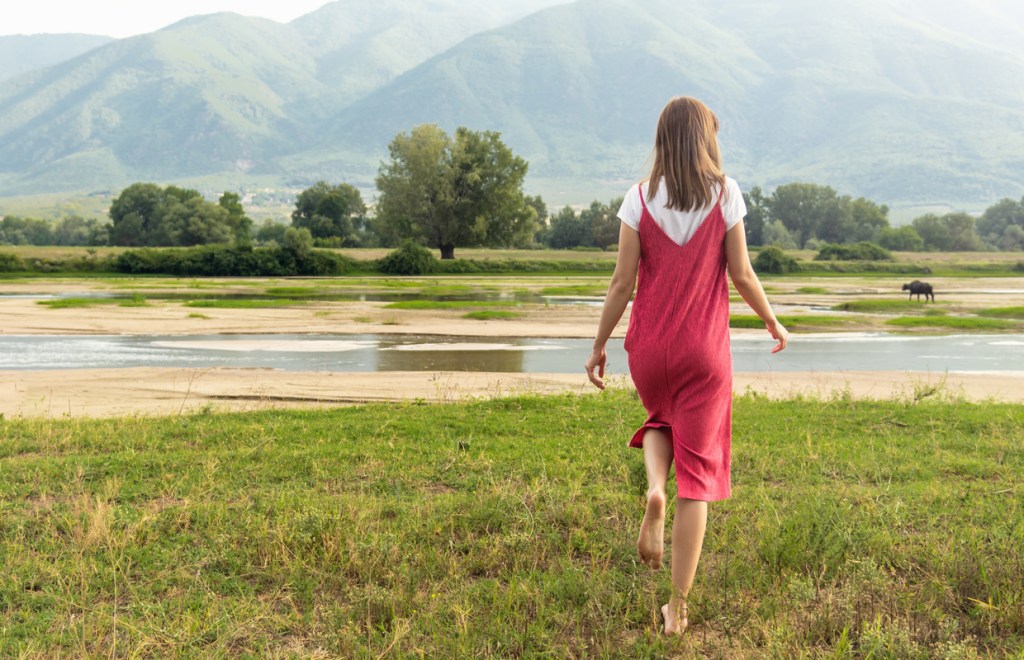
Reconnecting to nature
Reflecting on our session afterwards, I find that, as well as drawing strength and support from the experience, I can also plug into the sense of calm and acceptance that being in nature with Dunne brought me. While walking to an appointment that afternoon, I again listen to the birds sing in the sunshine. This returns me to the healing state of mind I entered during ecotherapy.
The simple beauty of embracing the therapeutic power of nature is that it is always ready and waiting for us whenever we choose to immerse ourselves in it. I recall Dunne telling me about a recent ecotherapy session he had with a client through local woodland, where they had an encounter with a fox, just a few yards away on the other side of a stream.
Little, special moments like that can remind us that, whatever else may be going on in our lives, the world is still full of wonder and magic, he says. ‘It’s about feeling part of those moments of privilege – when this world that we ignore so much lets us in. It’s there, and it will welcome us at any time.’lifetimetherapy.co.uk
How to ease your anxiety with walking and ecotherapy
Even if you can’t access ecotherapy, anyone can discover for themselves how walking and talking in nature does help with anxiety. Here are a few tips from ecotherapist Malachy Dunne, to help you harness the healing power of nature…
Slow down
Walking outside is an opportunity to take down the pace a few notches. Stroll, pause, breathe… Use all your senses to appreciate the beauty of the natural world around you.
Find running water
Fresh, flowing water creates an abundance of negative ions. These are said to have a natural antidepressant effect on human beings. If possible, try to walk beside the running water, perhaps stopping occasionally to sit, listen and simply exist.

Listen properly
If you are walking with someone else, let them know that you are really listening to them, rather than just batting conversation back and forth. Practise listening skills, such as clarifying a complex point, or repeating words back to them.
‘That might sound a little contrived,’ says Dunne. ‘But, the more we do it, the more we will hear what people have to say – rather than simply responding to what they have said. Learning this valuable skill is great for our companion, and it’s beneficial for us, too.’
Turn off your phone
If this is a step too far, at least put it in your pocket and leave it there. This should be a time to be truly present in the moment. So, don’t be tempted to post pictures to Instagram or check WhatsApp!
Make walking in nature a habit
Just like exercise, if you start making a conscious effort to go out into green spaces regularly, you will quickly see the benefits for your anxiety and well-being. And the more you do it, the more you will want to do it.
More inspiration: Mindfulness walking – the power of moving meditation
Words: Alice Wright and Emma Winterschladen | Images: Shutterstock
